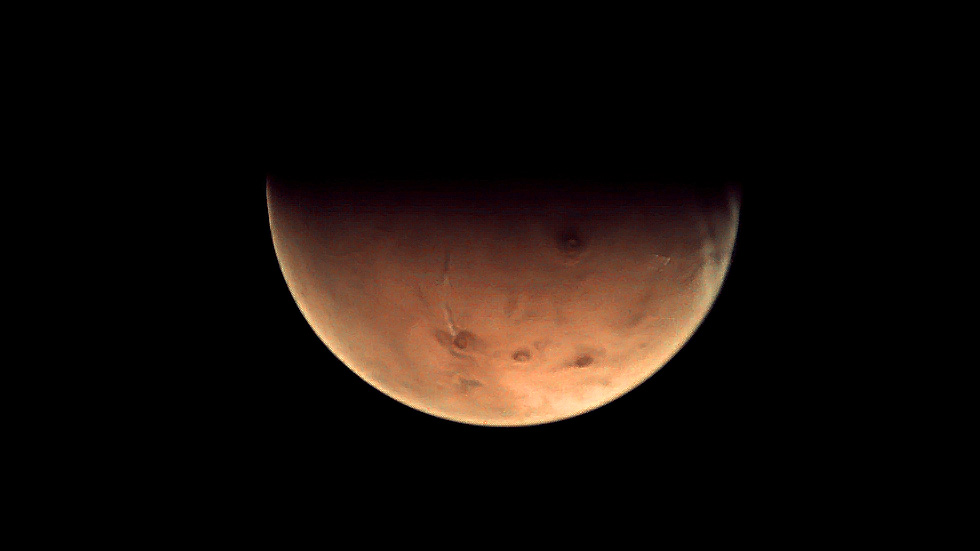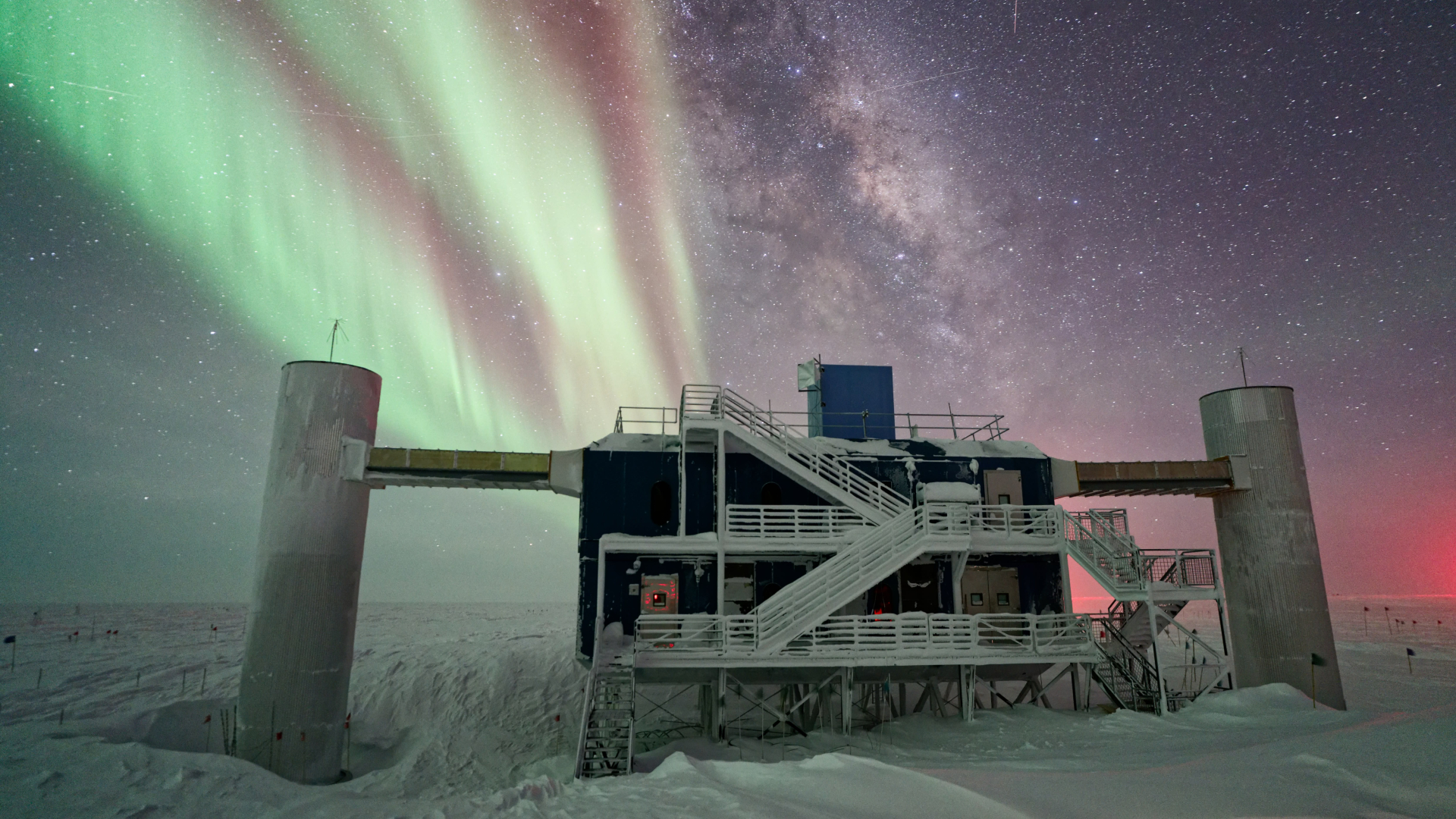Life on Mars! Unless it's E.T., Who Cares?

Get the world’s most fascinating discoveries delivered straight to your inbox.
You are now subscribed
Your newsletter sign-up was successful
Want to add more newsletters?

Delivered Daily
Daily Newsletter
Sign up for the latest discoveries, groundbreaking research and fascinating breakthroughs that impact you and the wider world direct to your inbox.

Once a week
Life's Little Mysteries
Feed your curiosity with an exclusive mystery every week, solved with science and delivered direct to your inbox before it's seen anywhere else.

Once a week
How It Works
Sign up to our free science & technology newsletter for your weekly fix of fascinating articles, quick quizzes, amazing images, and more

Delivered daily
Space.com Newsletter
Breaking space news, the latest updates on rocket launches, skywatching events and more!

Once a month
Watch This Space
Sign up to our monthly entertainment newsletter to keep up with all our coverage of the latest sci-fi and space movies, tv shows, games and books.

Once a week
Night Sky This Week
Discover this week's must-see night sky events, moon phases, and stunning astrophotos. Sign up for our skywatching newsletter and explore the universe with us!
Join the club
Get full access to premium articles, exclusive features and a growing list of member rewards.
If a microorganism were found on Mars, would anyone care?
NASA scientists announced on March 12 that the Red Planet could have supported ancient life — though they don't yet have evidence that it did. A sample of rock drilled by the Curiosity rover revealed conditions that could have supported ancient microbes at some point in the distant past.
The news of even potential life made headlines, and there's no doubt the discovery of actual microbial life on Mars would, too. But the impact of finding life on another world might not be as Earth-shattering as one might think, experts say. That's mainly because the life probably wouldn't be asking to be taken to our leader.
"People don't get excited about microorganisms," said Chris McKay, an astrobiologist at NASA Ames Research Center in Moffett Field, Calif.
Life on Mars?
For scientists, Mars life would be a big deal, McKay told LiveScience. Even more paradigm-altering would be to find that life on Mars originated independently.
It's plausible that Mars and Earth exchanged material in their early days, and that life found on Mars could have arisen from the same source as life on Earth. Such a discovery would be intriguing, McKay said, but "not as profound as finding that there's life on Mars and finding that it represents a second genesis."
Get the world’s most fascinating discoveries delivered straight to your inbox.
"If we find on Mars evidence for a second genesis, that changes everything," he said. [Photos: Curiosity Finds Habitable Martian Site]
Life evolving twice in the same solar system would suggest that life is common throughout the universe, McKay explained. Such a discovery would be huge for biologists, who would suddenly have an entirely new type of biology to study.
McKay doesn't envision any major shifts in philosophy among the public in response to such a discovery, though. The discovery of microorganisms on another planet wouldn't necessarily spur the need to re-evaluate humanity's place in the universe, for example.
"I would put it along the lines of the discovery of the Higgs boson," McKay said, referring to the particle theorized to explain where other particles get their mass. "It would be that sort of level of event. It would be out in the public and people would be like, 'Oh, wow,' but mostly it would be something that scientists would get into."
Physicists announced last week they had confirmed the newfound particle discovered with experiments in the Large Hadron Collider was indeed a Higgs boson, with other physicists expressing their excitement and exhilaration of the discovery.
Life versus life
Indeed, some data suggests that even the discovery of intelligent extraterrestrials wouldn't shake human society beyond its ability to cope. One survey of more than 1,300 religious individuals released in 2011 found that believers were extremely confident that the discovery of intelligent aliens wouldn't shake their faith. [7 Theories on the Origin of Life]
"Theologians and religious leaders who have looked at this, it's surprising to me that they have so little to say — almost as if it's not interesting," said Ted Peters, a theologian at Pacific Lutheran Theological Seminary in Berkeley, Calif., who led the study.
Mars microbial life would be unlikely to have much of a theological impact, Peters told LiveScience. Most religious traditions hold that life is the creation of God, but don't commit to an exact explanation of how God did it. Life's origin could happen through chemistry multiple times throughout the solar system and not conflict with these worldviews, Peters said.
The discovery of intelligent life somewhere in the universe would be far more theologically significant, Peters said. Such a discovery could throw open fundamentally spiritual questions, he said: Are the aliens spiritual? Do they have a sense of morality, empathy or love?
Intelligent aliens could also provide answers about the evolution of religious belief, Peters said. Some scientists hold that religion is a primitive way of explaining the world, and that science will replace it, he said. If super-intelligent aliens were to both embrace science and God, it might disprove that evolutionary theory.
Discovering intelligent life would also be scientifically valuable, above and beyond any discovery that microbes evolved on Mars, McKay said. There are three big steps that get you to a species like humans: The origin of life, the evolution of complex life such as plants and animals, and, finally, the development of intelligence.
"We don't have any expectation that, on Mars, life did the other two steps," beyond possibly originating, McKay said. "Communicating with extraterrestrial intelligence takes us to the end of that comparison, so we immediately know that all three steps occurred."
Follow Stephanie Pappas @sipappas. Follow LiveScience on Twitter @livescience, Facebook or Google+. Original article on LiveScience.com.

Stephanie Pappas is a contributing writer for Live Science, covering topics ranging from geoscience to archaeology to the human brain and behavior. She was previously a senior writer for Live Science but is now a freelancer based in Denver, Colorado, and regularly contributes to Scientific American and The Monitor, the monthly magazine of the American Psychological Association. Stephanie received a bachelor's degree in psychology from the University of South Carolina and a graduate certificate in science communication from the University of California, Santa Cruz.
 Live Science Plus
Live Science Plus










